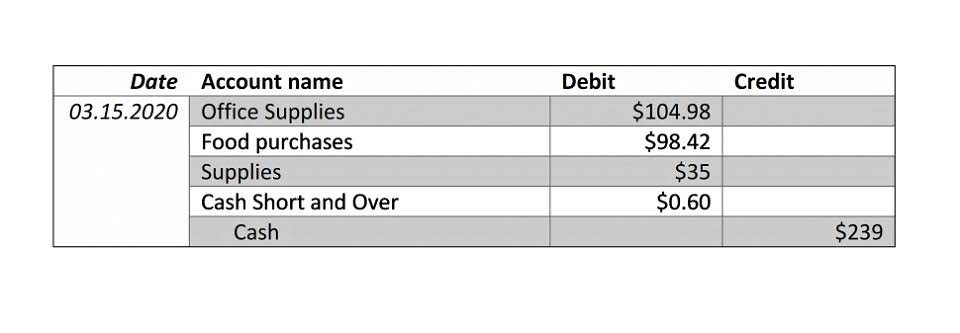
Chief Financial Officers identify business risks by looking at financial data and make appropriate decisions to mitigate those risks, among their many leadership functions. After moving to the corporate or private sector, a controller may continue to develop skills as an accountant booking transactions or manager overseeing the operations of a specific finance department. This includes developing gaps related to receivables reporting, payroll, quarterly financial reporting, or internal controls. Financial controllers are often the head financial position in charge of overseeing that historical, actual financial transactions are being reported properly.
They collaborate closely with other management team members to ensure that the organization’s financial information is accurate, timely, and compliant with all applicable rules and regulations. A common yet underappreciated role of the business controller is interpreting financial data. Controllers typically have a great deal of accounting and business forecasting experience, particularly as it pertains to tax management. A controller may also be called on to lend his or her expertise on investments, creditor relationships, corporate governance, or other areas.
Outsourced vs In-House Controller: Which is Right for Your Business?
They work closely with other management team members to ensure that the company’s financial information is accurate, timely, and compliant with all relevant laws and regulations. They are also responsible for monitoring actual performance against budget and identifying and addressing variances. Remember, whether you opt for a controller or chief accounting officer will depend on several factors unique to your business. Consider https://www.bookstime.com/ things like size, growth plans, current financial challenges as well as future goals when making this critical decision. Regardless of which position you choose, it’s important to hire an experienced professional with strong leadership skills and expertise in financial management. With the right individual at the helm, you can be confident that your company’s finances are in good hands and poised for long-term success.
Controllers typically focus on day-to-day accounting tasks such as managing accounts payable and receivable, reconciling bank statements, and preparing financial reports. When it comes to deciding whether you need a controller or a chief accounting officer for your business, there are several factors to consider. The size and complexity of your organization’s financial operations will play a major role in determining which position you need. On the other hand, a chief accounting officer (CAO) has a more strategic role within an organization. They develop policies and procedures to ensure effective financial management across all departments.
Chief Accountant vs. Similar Jobs
It includes performing internal audits, reviewing financial statements and reports, and ensuring that the company’s financial systems and procedures comply with legal and regulatory requirements. They also play a crucial role in identifying potential risks and opportunities and recommending mitigation strategies. CAOs also play a crucial role in identifying potential risks and opportunities and recommending mitigation strategies.

As the world of business changes, so too do the roles within it, and being a CAO is no exception. CAOs are in charge of setting the direction for and carrying out all accounting practices in an organization. Moreover, ensure that the department’s employees have the proper training to use technology to its fullest potential for the most overall benefit. Organizations must keep up with technological changes chief accounting officer vs.controller because new technologies can significantly impact how well finances are managed. As a result, it is up to the Chief Accounting Officer to ensure that the latest hardware and software packages are implemented whenever needed to make the department run smoothly. And ensure that the department’s employees have the proper training to use technology to its fullest potential for the most overall benefit.
Prepares Financial Analysis and Budget
Meanwhile, an FP&A director leverages historical data to devise future plans that may or may not materialize. These plans may rotate on a quarterly basis if the company decides to reforecast any projections. Last, it is not an industry requirement to obtain a Certified Public Accountant (CPA), Certified Management Accountant (CMA), Chartered Financial Analyst (CFA), or any other type of licensure.
- Controllers spend most of their time in the trenches making sure ledgers are accurate and systems are working properly.
- So, a controller has more of an overall financial management role, and the CAO is more focused on the accounting function.
- Entry-level accountancy jobs may be perfectly fine, but the vast majority of controllers have years of experience and several professional certifications.
- A controller’s primary and most commonly understood role is to manage operations of the accounting and finance function and collaboration with all other operating departments.
- The duties of a controller include assisting with the preparation of the operating budgets, overseeing financial reporting and performing essential duties relating to payroll.
Also, a company may employ a junior status to candidates that must first demonstrate proficiency in the role before getting promoted. Any person involved in the company’s finances will likely report to the Chief Financial Officer. The Chief Financial Officer (CFO) supervises the company’s ledger and financial controls. It requires practical negotiation skills and foresight into what items may be needed at certain times throughout the year to make informed decisions about the vendor selection process accordingly. They often provide insight into the financial motivations behind an M&A transaction alongside its estimated return on investment (ROI).


